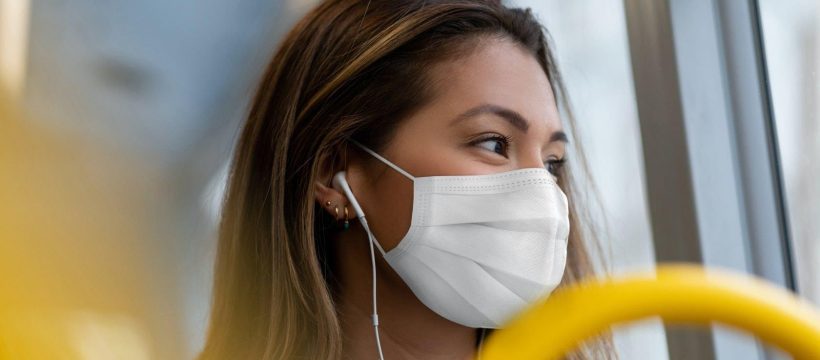Written by Amy Beecham
The UK’s chief medical advisor has suggested face coverings return and people stay home if they feel unwell as infections rise after Christmas.
Professor Susan Hopkins, chief medical adviser at the UK Health Security Agency (UKHSA), has warned adults to stay at home when feeling unwell or wear face coverings when leaving the house in order to minimise the spread of illness.
UKHSA warned that both flu and Covid-19 are currently “circulating at high levels”, which is likely to continue to increase in coming weeks, and issued advice on “simple steps” to help protect children and vulnerable individuals after the Christmas break.
According to the latest government data (up to and including 17 December 2022), 36,963 people in England tested positive for Covid-19, a 28.8% increase from the previous week.
High numbers of scarlet fever, which is caused by group A streptococcus (strep A), also continue to be reported in the UK. At least 30 children in the UK have died from invasive strep A, and across all age groups in England, there have been 122 fatalities.
On Monday (2 January), a senior NHS boss also warned the health service is under “unbearable strain” as pressure is mounting on the government to take action.
Matthew Taylor, head of the NHS Confederation, told Sky News that most NHS leaders say “this is the toughest winter they’ve ever dealt with”, adding: “We cannot go on like this.”
Will face coverings become a legal requirement again?
The legal requirement to wear a face covering no longer applies in the UK. However, the government suggests that you continue to wear a face covering in crowded and enclosed spaces where you may come into contact with people you do not normally meet.
Face coverings and face masks are also required in health and care settings, including hospitals, GP surgeries and care homes.
In line with government guidance, if you leave your home while you have symptoms of a respiratory infection, and you have a high temperature or feel unwell, you should:
- wear a well-fitting face covering made with multiple layers or a surgical face mask
- avoid crowded places such as public transport, large social gatherings or anywhere that is enclosed or poorly ventilated
- take any exercise outdoors in places where you will not have close contact with other people
- cover your mouth and nose when you cough or sneeze; wash your hands frequently with soap and water for 20 seconds or use hand sanitiser after coughing, sneezing and blowing your nose and before you eat or handle food; avoid touching your face
“Remember that flu vaccination is still available for all eligible groups and is the best protection against the virus,” UKSHA urges.
For more information about face coverings, vaccines and Covid-19 advice, visit the Public Health England or NHS websites.
Images: Getty
Source: Read Full Article
